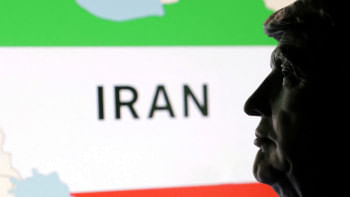Understanding Carbon Neutrality & Debt

Comparing our current days with five years back from now we can easily comprehend the fact that temperature is rising and as a result we feel scorching heat every year. Globally, the year 2023 was 1.48°C warmer than the pre-industrial period, as reported in an article in TIME and according to data revealed by the National Oceanic and Atmospheric Administration (NOAA), the year 2024 has a 99 percent chance that it would rank among the top five warmest years in human history.
Despite producing only 0.56 percent of the global emissions changing the climate, Bangladesh ranks seventh on the list of countries most vulnerable to climate devastation, according to Germanwatch's 2021 Global Climate Risk Index (CRI).
Rising temperature is related to rising greenhouse gas emissions and fossil fuels are probably the largest contributor to global climate change, which accounts for over 75 percent of global greenhouse gas emissions and nearly 90 per cent of all carbon dioxide emissions. This may gradually take an irreversible turn any day if we continue carbon emissions at the rate we are in now.
As a citizen, one must realize the necessity of being carbon neutral and paying off the carbon debt. To put it in plain terms, carbon neutrality means a situation when an individual/ organization/ country is not adding to the total amount of carbon dioxide in the atmosphere. The amount of greenhouse gases in the atmosphere is already high and the more we emit carbon dioxide, the more we put the planet and its future in jeopardy. That's why, we need to be carbon neutral.
Moreover, from a broader perspective, countries and big corporations need to pay off carbon debt. For those unversed in this term, it's the difference between the amount of carbon dioxide produced by a country, company, etc and the amount that it offsets. As different countries are contributing a lot to the rise of greenhouse gases in the atmosphere, they need to counterbalance it by doing something that will help neutralise the situation.
As a long-term commitment to reducing carbon dioxide emission is mostly missing among those who are largely responsible for this (both countries and companies), something like carbon pricing has the potential to go a long way in curbing rapidly rising carbon debt, which in the long run will help mitigate the devastating scenario we are facing today.
Take the automobile industry for example. Different kinds of road transport are responsible for 16 percent of global emissions while independent sources claim that SUVs have contributed to a rise in global carbon dioxide emissions more than iron, steel, cement, and aluminium production combined in the last decade. Now unless strong action is taken, this may get worse. In this connection, manufacturers need to opt for options that will not only reduce carbon emissions but also help decrease the temperature.
For instance, global new energy vehicle (NEV) manufacturer BYD (Build Your Dreams) is actively involved in promoting sustainability and contributing to carbon neutrality efforts. In the process they have completely discontinued the production of ICE (internal combustion engine) vehicles and focused their core business operations on manufacturing NEVs, renewable energy products, and energy storage solutions.
The company has converted its passenger vehicle fleet into NEVs and emerged as a global leader in the electric vehicle market. By manufacturing and promoting electric cars, buses, and other types of electric transportation, it aims to reduce the reliance on traditional combustion engines that contribute to carbon emissions. It took this exemplary step since the automotive industry accounts for a significant percentage of carbon emissions.
With a vision to contribute to cooling the earth by one degree, it is involved in the production of renewable energy solutions, including solar panels and energy storage systems. The company imagines a future where clean and renewable energy sources play a crucial role in meeting global energy needs while minimising the environmental impact.
The writer is head of category development & marketing, CG Runner Bangladesh

 For all latest news, follow The Daily Star's Google News channel.
For all latest news, follow The Daily Star's Google News channel. 




Comments